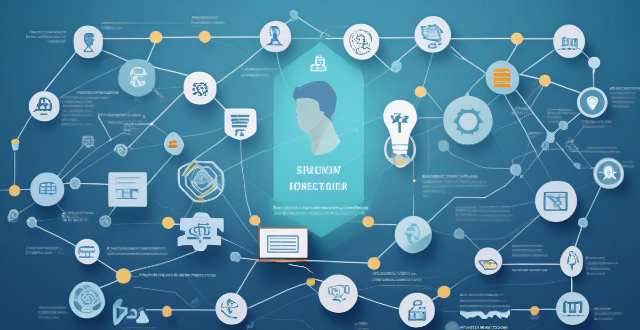VPN services create an encrypted connection over the Internet, allowing users to securely send and receive data as if their devices were on a private network. This enhances privacy by masking IP addresses, protects data on public Wi-Fi, and enables access to geo-restricted content. However, VPNs are not a complete cyber defense solution; they do not protect against all malware or phishing attacks. Trustworthiness of the provider is crucial, and legal and performance considerations should be noted. Responsible use includes pairing VPNs with other security measures and adhering to ethical guidelines. As technology advances, expect more sophisticated VPN services, but awareness about their role in cyber defense is also growing.

Understanding VPN Services and Cybersecurity
What is a VPN Service?
- A VPN (Virtual Private Network) service creates a secure, encrypted connection over the less secure Internet.
- It allows users to send and receive data across public networks as if their computing devices were directly connected to the private network.
How Does a VPN Work?
- Encryption: VPNs use encryption protocols like SSL or IPSec to secure data transmission.
- Server Network: Data is sent through a network of remote servers, obscuring the user’s IP address and location.
- Security Layer: This provides an additional security layer, protecting data from interception and unauthorized access.
Advantages of Using a VPN in Terms of Cyber Threats
- Enhanced Privacy: VPNs mask the user's IP address, making it harder for hackers to track or collect personal data.
- Public Wi-Fi Security: Using a VPN protects data transmission when connected to less secure public Wi-Fi networks.
- Unblocking and Anonymity: Allows access to geo-restricted content and provides a degree of anonymity online.
Limitations of VPNs in Cyber Defense
- Not a Complete Solution: While VPNs enhance privacy, they do not protect against all forms of malware or phishing attacks.
- Trustworthiness of Providers: The reliability and trustworthiness of the VPN provider are crucial; some keep logs or have weak security practices.
- Technical Issues: Improper configuration or software vulnerabilities can compromise the effectiveness of a VPN.
Comparing VPNs with Other Security Measures
- Firewalls: Unlike firewalls, which block unauthorized access, VPNs encrypt data to protect information in transit.
- Antivirus Software: Antivirus software protects against malware, while VPNs primarily secure data and privacy online.
Risks and Considerations
- Legal Aspects: Some countries regulate VPN use; users must ensure compliance with local laws and policies.
- Performance Impact: VPNs can slow down internet speed due to encryption processes.
- Cost Factor: Reliable VPN services often require subscription fees.
Recommended Practices
- Research Providers: Choose a reputable VPN provider that offers high security and does not keep logs.
- Multi-Layered Security: Use VPNs in conjunction with other security measures like strong passwords and two-factor authentication.
- Regular Updates: Keep VPN software updated to benefit from the latest security features and patches.
How Laws Impact VPN Use
- Data Protection Laws: In China, new data protection laws strengthen personal information security.
- Government Regulation: Some governments regulate the use of VPNs to ensure cyberspace governance.
Global Perspective on VPN Usage
- International Norms: Many countries are working on norms for cyberspace that promote lawful and peaceful internet use.
- Global Access: VPNs provide access to global internet resources without geographical restrictions.
Ethical Considerations of Using a VPN
- Privacy Rights: VPNs uphold privacy rights by preventing undue surveillance or data collection.
- Responsible Use: Users should adhere to ethical guidelines and avoid using VPNs for illegal activities.
Future Developments
- Advancements in Technology: As technology improves, expect more sophisticated VPN services with better security features.
- Increasing Awareness: As cyber threats evolve, awareness about the importance of VPNs in personal and corporate cyber defense is growing.
VPN services offer significant benefits in safeguarding against hackers and cyber threats by enhancing privacy, protecting data in transit, and providing a layer of security when using public networks. However, users must understand that VPNs are just one part of a comprehensive cyber defense strategy. It is crucial to pair VPN usage with other security measures and to select a trustworthy provider. Being aware of legal and ethical considerations is also essential for responsible VPN use.